Genomics
Institute
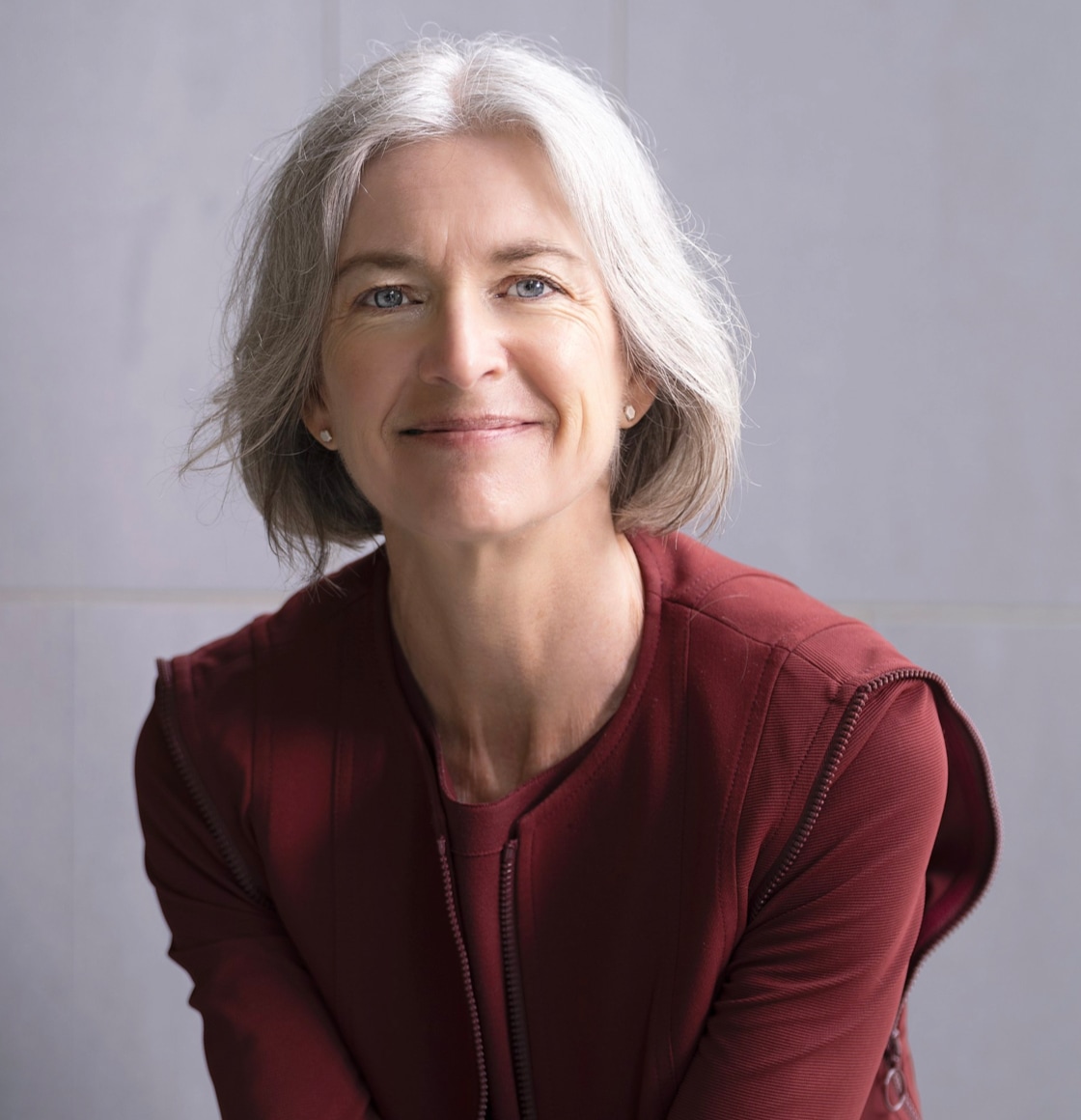
Jennifer Doudna
Founder & Chair of the IGI Governance Board
Dr. Jennifer A. Doudna is the Li Ka Shing Chancellor’s Chair and a Professor in the Departments of Chemistry and of Molecular and Cell Biology at the University of California, Berkeley. Her groundbreaking development of CRISPR-Cas9 as a genome-engineering technology, with collaborator Emmanuelle Charpentier, earned the two the 2020 Nobel Prize in Chemistry and forever changed the course of human and agricultural genomics research.
This powerful technology enables scientists to change DNA — the code of life — with a precision only dreamed of just a few years ago. Labs worldwide have re-directed the course of their research programs to incorporate this new tool, creating a CRISPR revolution with huge implications across biology and medicine.
In addition to her scientific achievements, Doudna is a leader in public discussion of the ethical implications of genome editing for human biology and societies, and advocates for thoughtful approaches to the development of policies around the safe use of CRISPR technology.
Doudna is an investigator with the Howard Hughes Medical Institute, senior investigator at Gladstone Institutes, and the founder of the Innovative Genomics Institute. She co-founded and serves on the advisory panel of several companies that use CRISPR technology in unique ways.
She is a member of the National Academy of Sciences, the National Academy of Medicine, the National Academy of Inventors, and the American Academy of Arts and Sciences. Doudna is also a Foreign Member of the Royal Society, a member of the Pontifical Academy of Sciences, and has received numerous other honors including the Breakthrough Prize in Life Sciences (2015), the Japan Prize (2016), Kavli Prize (2018), the LUI Che Woo Welfare Betterment Prize (2019), and the Wolf Prize in Medicine (2020). Doudna’s work led TIME to recognize her as one of the “100 Most Influential People” in 2015 and a runner-up for “Person of the Year” in 2016. She is the co-author of “A Crack in Creation,” a personal account of her research and the societal and ethical implications of gene editing.
Biographic timeline
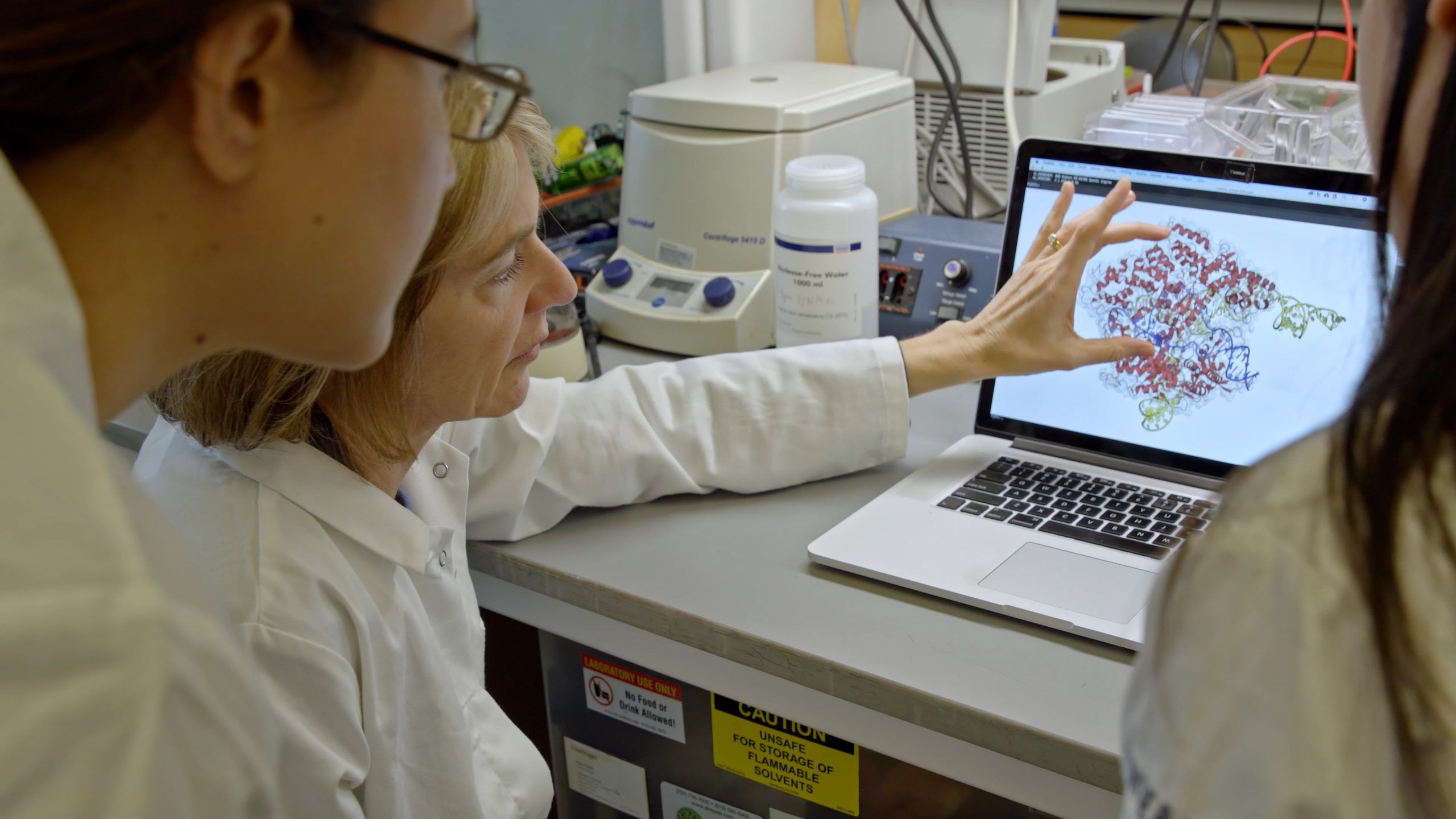
Research
The Doudna Lab pursues a mechanistic understanding of fundamental biological processes involving RNA molecules.
Recent work from Jennifer and her lab has focused on development of new tools for genome editing, cutting-edge research into delivery techniques for CRISPR-based therapies, next-generation CRISPR diagnostics, and continued investigations into the structure and mechanism of CRISPR-Cas systems.
In 2020, the COVID-19 pandemic prompted Jennifer and members of the Doudna Lab to quickly establish a pop-up diagnostic testing lab at the IGI, and pivot to rapid research projects to help address the crisis. In 2023, the Doudna Lab and Banfield Lab launched a new initiative to develop genome-editing approaches for microbiomes to address problems in human health and climate change, supported by The Audacious Project.
Selected recent publications below. For a full list of Doudna Lab publications, click here.
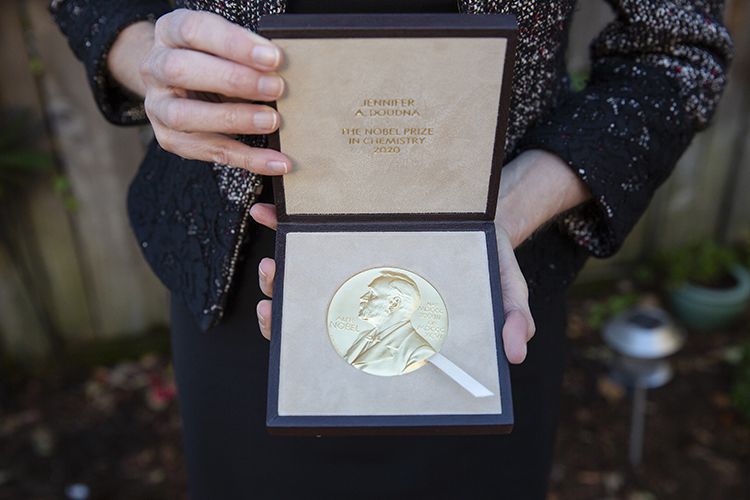
Nobel Prize
On October 7, 2020, Jennifer Doudna and Emmanuelle Charpentier were awarded the Nobel Prize in Chemistry for their work on developing CRISPR-Cas9 as a genome-editing tool. Learn more about the announcement, and the history of the research that led up to the prize:
- Jennifer Doudna Wins 2020 Nobel Prize In Chemistry — UC Berkeley press release
- 2020 Nobel Prize in Chemistry — Nobel Foundation Announcement
- Jennifer Doudna and Emmanuelle Charpentier: Behind the Development of CRISPR Genome Editing — How CRISPR went from a small curiosity to a Nobel-Prize-winning breakthrough
- The story of the 2012 Science paper — Recounted by Jennifer Doudna and Martin Jinek (includes a helpful annotated draft of the original paper)
Watch Jennifer's Nobel Prize lecture from December 8, 2020 on the history of her work on CRISPR-Cas9 and future directions for genome editing research.
CRISPR Resources
- What is CRISPR? CRISPR 101 A quick introduction to CRISPR genome editing.
- CRISPR Made Simple An illustrated primer on CRISPR genome editing for kids or anyone starting from scratch.
- CRISPRpedia A comprehensive textbook-style resource covering all things CRISPR, edited by Jennifer Doudna and IGI Investigators.
- Frequently asked questions Related to CRISPR and the science and ethics of genome editing.
- Celebrating 10 Years of CRISPR Genome Editing The rapid progress that has been made in just 10 years, and what comes next.
- Illustrated glossary of key genome editing terms
Book & Documentary
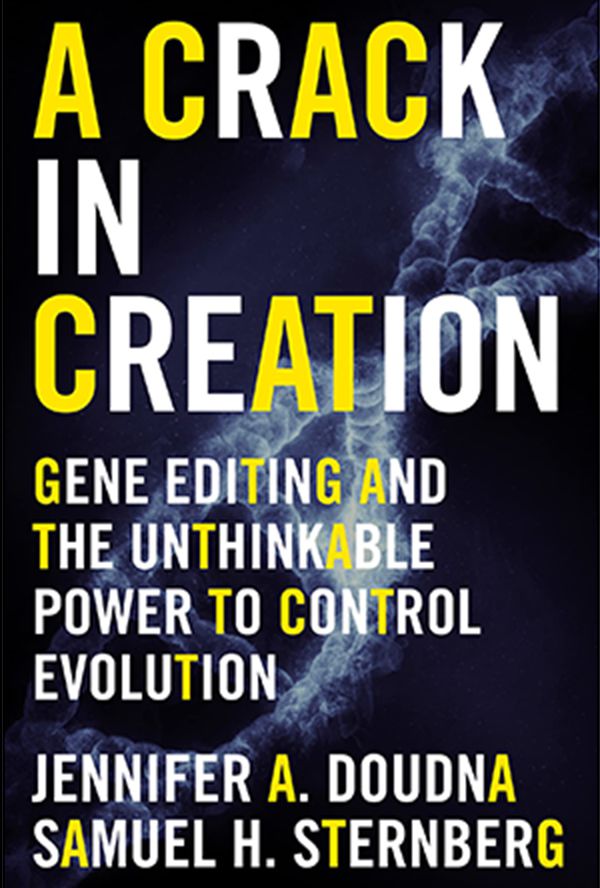
A Crack in Creation
A popular science book about her personal and professional experiences in CRISPR research from IGI founder Jennifer Doudna and her former graduate student, Sam Sternberg, A Crack in Creation offers a behind-the-scenes look at the development of CRISPR genome editing technology, its applications, and ethical implications.
Described as “required reading for every concerned citizen” by the New York Review of Books, A Crack in Creation (2017) takes the reader on a scientific journey, vividly exploring an unexpected discovery that has reshaped the future of humanity in just a short time.
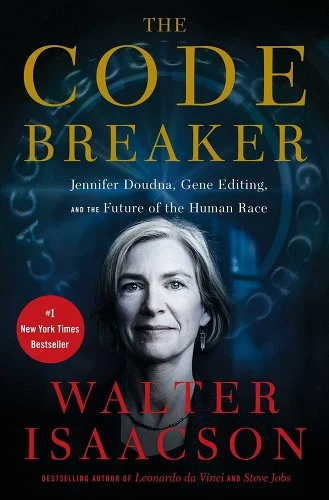
The Code Breaker
Walter Isaacson, the bestselling author of Leonardo da Vinci and Steve Jobs returns with The Code Breaker, an account of how Nobel Prize winner Jennifer Doudna and her colleagues launched a revolution that will allow us to cure diseases, fend off viruses, and have healthier babies. Plus, readers get an inside look at the rapid transformation inside the IGI as the COVID-19 pandemic began.
Named a Best Book of 2021 by Bloomberg BusinessWeek, Time, and The Washington Post, and a #1 New York Times Bestaeller, The Code Breaker is also available in a young readers edition
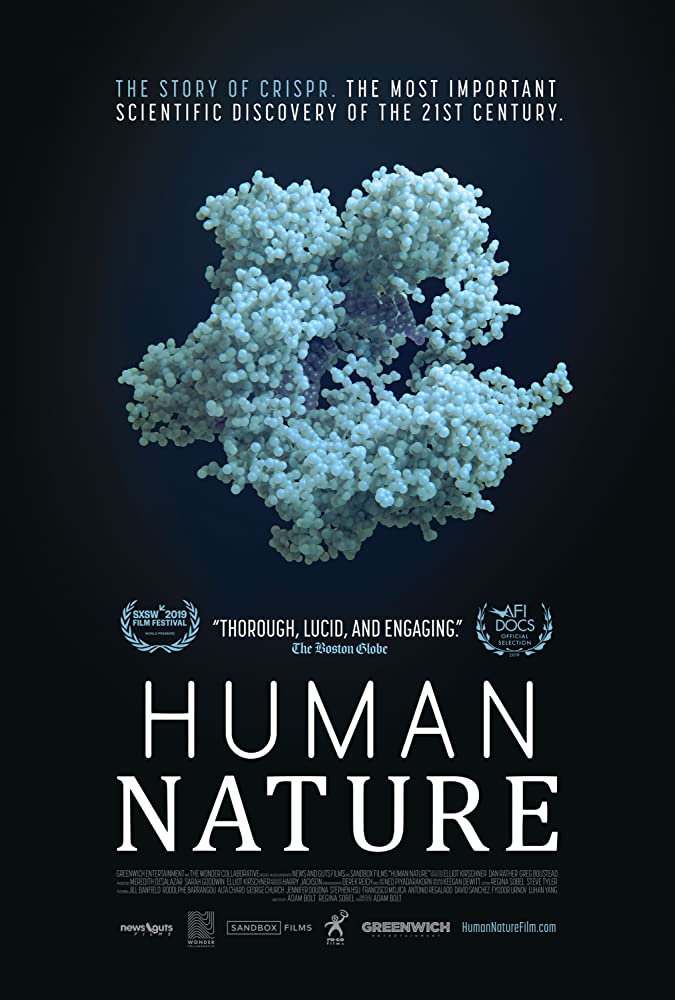
Human Nature
Human Nature, a feature from executive producer Dan Rather and director Adam Bolt, breaks down the science behind CRISPR and encourages viewers to think about the potential implications of this transformative innovation. Includes interviews with Jennifer Doudna, as well as IGI scientific directors Jill Banfield and Fyodor Urnov.
Human Nature is now streaming on Netflix, or visit the film's website for information on how to watch and for accompanying educational resources.
Contact & Media Resources
For interviews, speaking, and appearances, please contact Kaustuva Das at kdas@thermalpr.com
For general IGI inquiries, please see our Contact page
Photo Downloads
Photos of Jennifer Doudna for media and educational use are available to download here. Please attribute photos to "Innovative Genomics Institute, UC Berkeley" or as specified in the download.